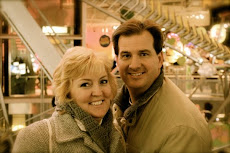USA Today reported earlier this week on the decline of evangelicalism in America. Reporter Cathy Lyn Grossman stated her case...
The number of people who claim 'no religion' has almost doubled in the last 18 years, from 8% of the population to 15%.
The number of Baptists has decreased from 19.3% to 15.8%. (Even though the Southern Baptist Church has continued to grow, it hasn't kept up with the growth of the adult population, mainly due to immigration.)
Those who claim to be simply "Protestant" remain the same 14% as they were in 1990.
Though we need to aware of the numbers and we can not afford to be apathetic toward apparent trends, it's also true that there are still an estimated 115 million adult Protestant Christians in the US right now, which is well over 50% of the population.
When you add 57 million Catholics to that number, it's clear that this is still (at least now) a very religious, and predominantly Christian, nation.
Interestingly, evangelical Michael Spencer wrote an excellent editorial for the Christian Science Monitor earlier this week, The Coming Evangelical Collapse. I don't know that I agree with him, and I certainly hope he's wrong on a couple of points, but it's an interestingly read.
Subscribe to:
Post Comments (Atom)

2 comments:
The writer of that Christian Science Moniter article - Michael Spencer - seems overly hung up on assigning labels ... and focusing on the process of church rather than regeneration power of the Bible.
He seems to believe that faithful Christians are living and working and worshiping in a spiritual vaccuum, and will just jump ship a the slightest push from secular America.
I had to stop reading the article. I was getting depressed.
If this numbers are true, why is America in the condition we are in?
I mean think about this, if these numbers are true, well we can have 100% slavation rate in America, all we need is to have that miullions lead one person to Christ and we will have a 100% Salvation rate.
If this is true then why the article written below.?
"Are we the type that turn inward, or are we the type that turn outward and help one another?"
The answer to Gage's question is mixed: Some Americans are turning to community while others are retreating to their cocoons. Fewer, however, are turning to organized religion for support.
According to one perspective, more Americans turn to their remote, not their neighbor, in bad times. Netflix officials reported a 45 percent jump in profits during the end of 2008. Gross movie ticket sales are up 18.8 percent this year, according to BOXOfficeMojo.com. And home entertainment business sales are surging, according to sales figures.
Turning to Google instead of God
The duty to one's neighbor is a fundamental belief in most religions. It would seem natural that more people would turn to their church, mosque or synagogue for community in tough times.
But don't expect a shaky economy to lead to a national religious awakening, said Nancy Dallavalle, chairwoman of the Department of Religious Studies at Fairfield University in Fairfield, Connecticut.
While individual communities of worship may see some uptick in their numbers, Dallavalle said, fewer Americans depend on traditional religion for support.
Some studies reinforce her point. According to the American Religious Identification Survey, almost all religious denominations have lost members since 1990. Membership in mainline Protestant denominations has fallen for the past 30 years and has been widely documented.
Dallavalle says most Americans will turn to pop culture rather than the church for inspiration.The infomercial that promises wealth or the reality TV makeover show -- more Americans will look at these for inspiration, she said.
The Internet also siphons people away from traditional religious communities during tough times, she said. Americans who have grown up outside organized religion prefer to get their inspiration through the Internet: online motivational tracts, inspirational speakers and self-help gurus.
"Folks might not turn to God as much as they turn to Google," she said.
Post a Comment